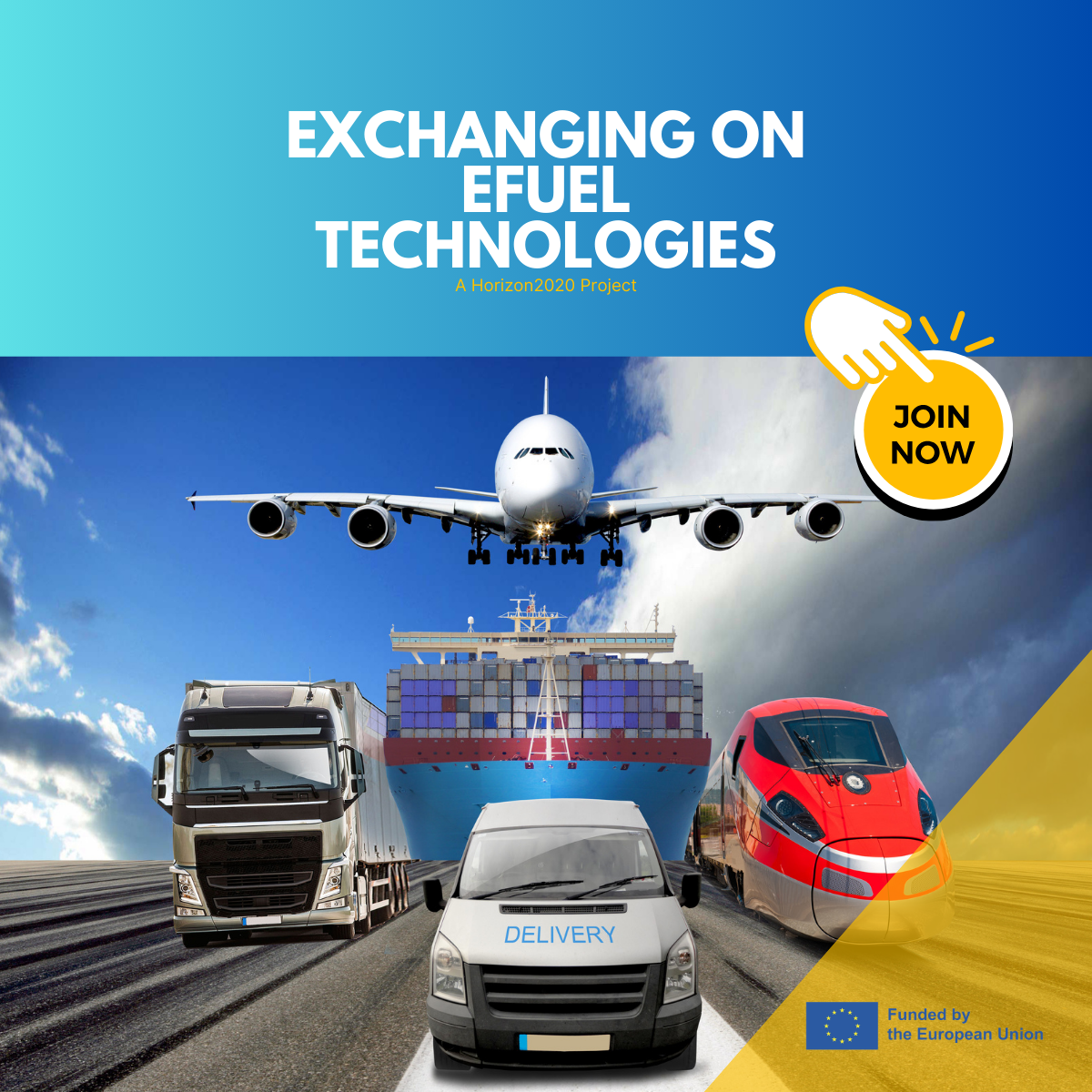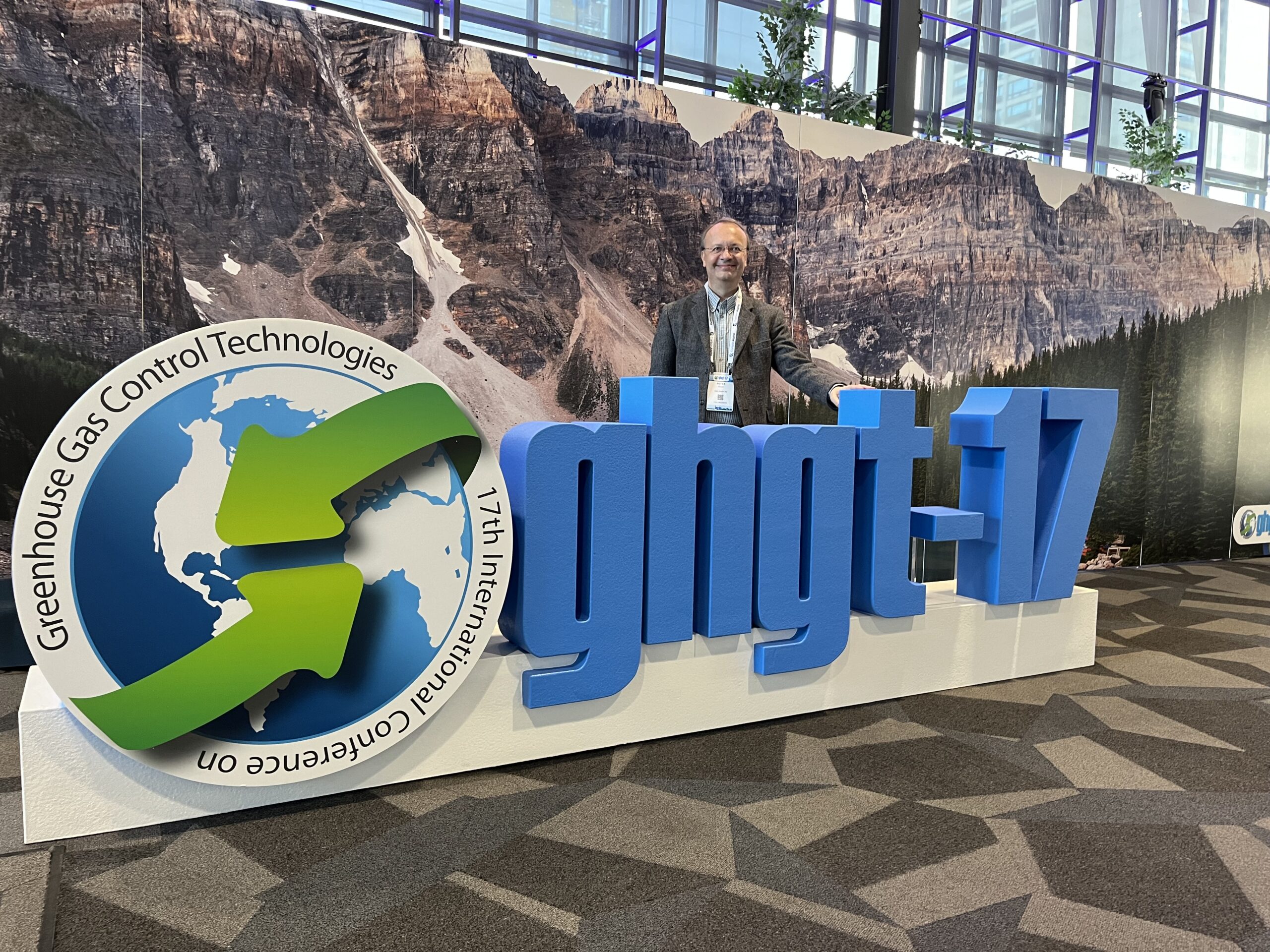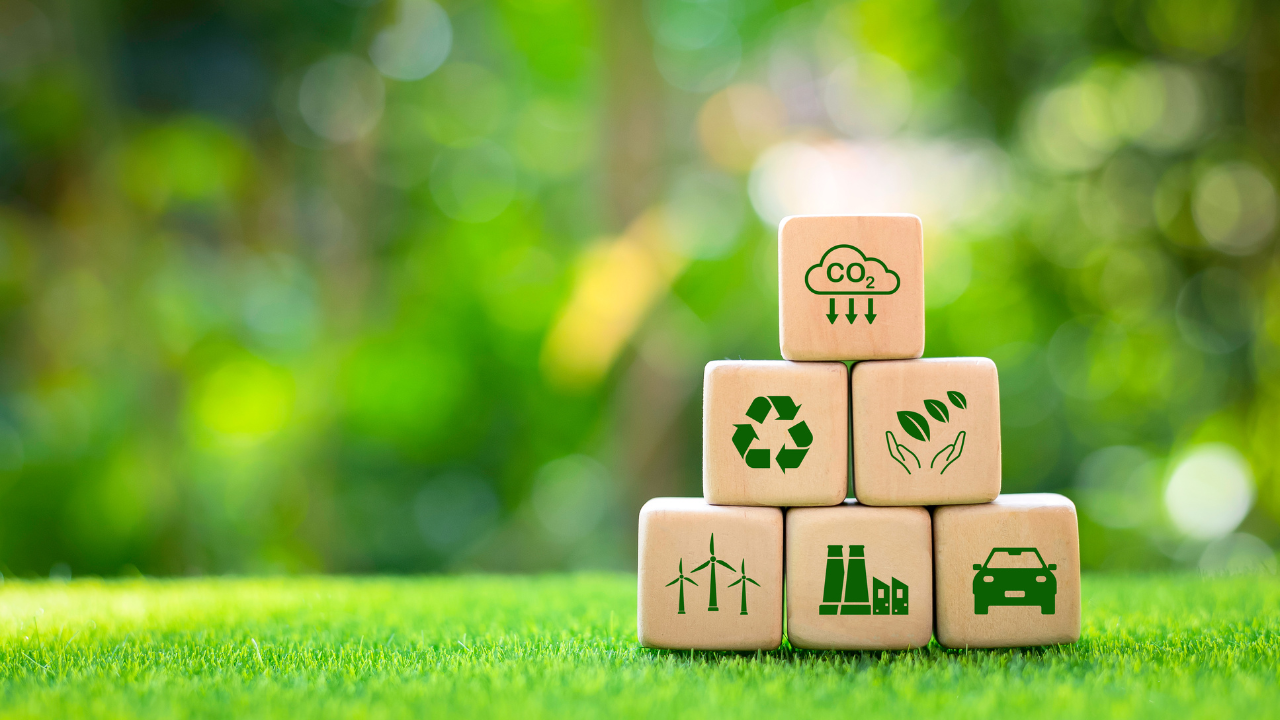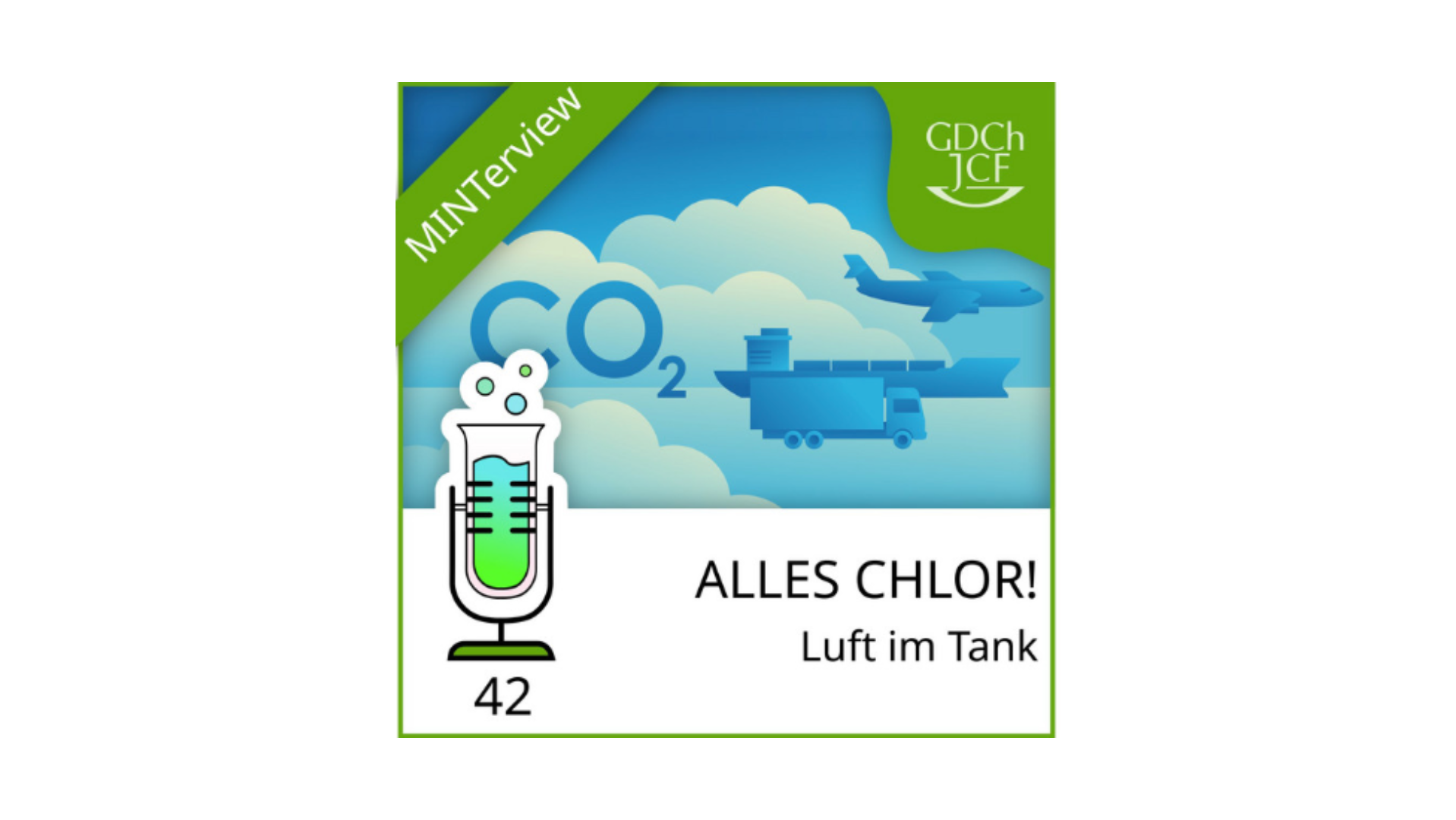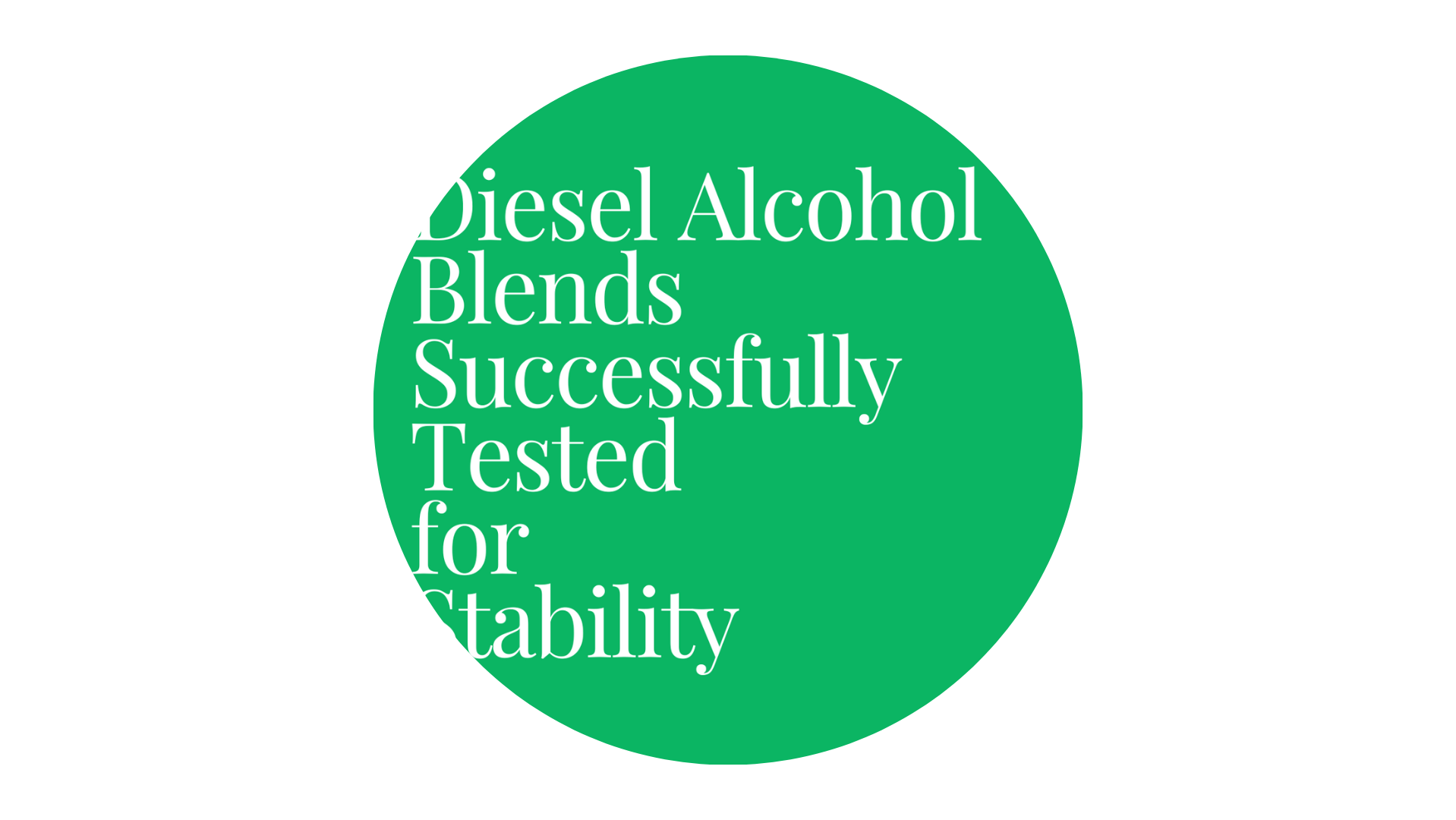Carbon Capture and electrochemical Utilization of CO2 – From research to industrial application
Without a substantial contribution from all economic sectors the net-zero climate protection targets cannot be achieved. Fossil feedstock for the chemical industry and fossil fuels for long-distance transport must be substituted. Therefore, the reduction of CO2 emissions by carbon capture and utilisation (CCU) and an intersectoral carbon cycle economy will be crucial in the transformation of the future supply systems. Very promising are electrochemical synthesis technologies to produce fuels and base chemicals from water, renewable electricity, and captured CO2 as they avoid the effort of high synthesis temperatures and pressures.

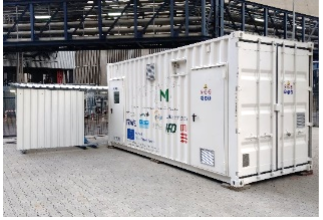
In contradiction, the conventional thermochemical synthesis routes based on CO2 and electrolytically produced H2 typically require temperatures >300°C and pressures >20bar for the reverse-water gas-shift reaction and consecutive reaction steps. Additionally, eCCU reduces the need for a H2 infrastructure and the coupling of renewable power generation and carbon utilisation offers carbon-neutral chemicals and fuels, security of supply, grid stability, and emission reduction.
Twenty-two partners from nine countries representing industry, research institutes, and universities are advancing the electrochemical CO2 utilisation in the three European-funded projects LOTER.CO2M, ECO2Fuel and OCEAN by demonstrating the complete technology chains at RWE’s Innovation Center at Niederaussem, comprising post-combustion CO2 capture and its utilisation in the electrochemical synthesis units of:



Critical Raw Material-free Low-Temperature Electrochemical Reduction of CO2 to Methanol The 5 kW demonstrator of LOTER.CO2M uses advanced, low-cost electrocatalysts and membranes for the direct electrochemical reduction of CO2 to methanol and ethanol by low-temperature CO2-H2O co-electrolysis. LOTER.CO2M passes the baton on to the follow-up project ECO2Fuel.
Large-scale low-temperature electrochemical CO2 Conversion to sustainable liquid fuels ECO2Fuel aims to design, manufacture, operate, and validate the worldwide first low-temperature 1 MW direct, electrochemical CO2 conversion system to produce sustainable liquid e-fuels (C1-C4 alcohols) under industrially relevant conditions.
Oxalic acid from CO2 using electrochemistry at demonstration scale The 6 kW unit of OCEAN demonstrates an innovative tandem electro-synthesis: Potassium formate is produced simultaneously at both electrodes of the electrochemical cell, cathode and anode. At the anode, glycerol – a by-product of the biodiesel production – is the resource. At the cathode CO2 is the feedstock. In consecutive processes oxalic acid can be produced from the formate.
The eCCU3 Workshop brings together the international experts from the three European demonstration projects, scientists from various research fields, and the public. It will provide a broad overview of the progress and potential of eCCU. The attendees can follow six presentations on all aspects of electrochemical CO2 utilisation and have the opportunity to discuss the status and prospects of the technology.
The three projects have received funding from the European Union’s Horizon 2020 research and innovation programme under the grant agreements No 767798 (OCEAN), 761093 (LOTER.CO2M) and 101037389 (ECO2Fuel).
The ECO2Fuel project will therefore consolidate the EU’s first-mover advantage in the green technology sector and strengthen its competitiveness with an innovative and disruptive technology to meet its emission targets by 2050.

